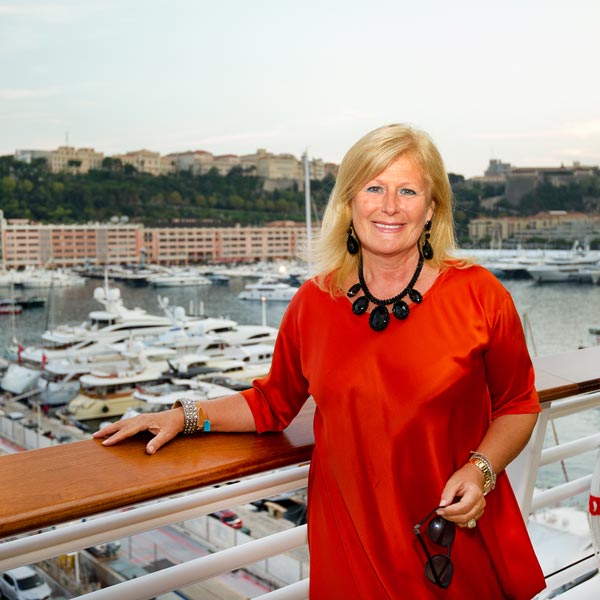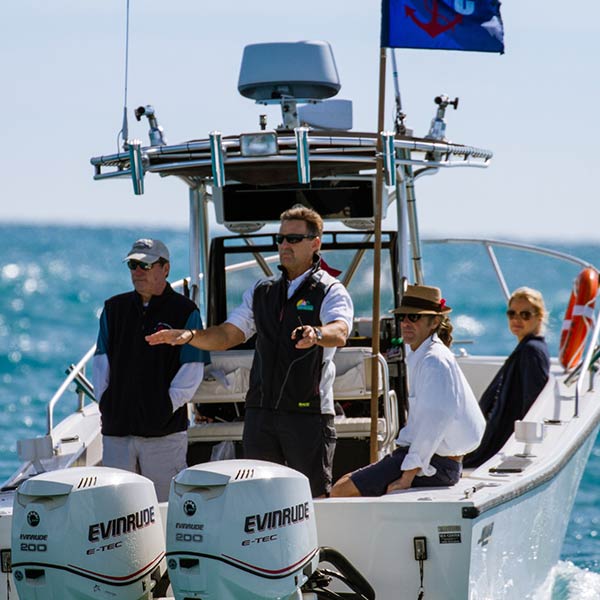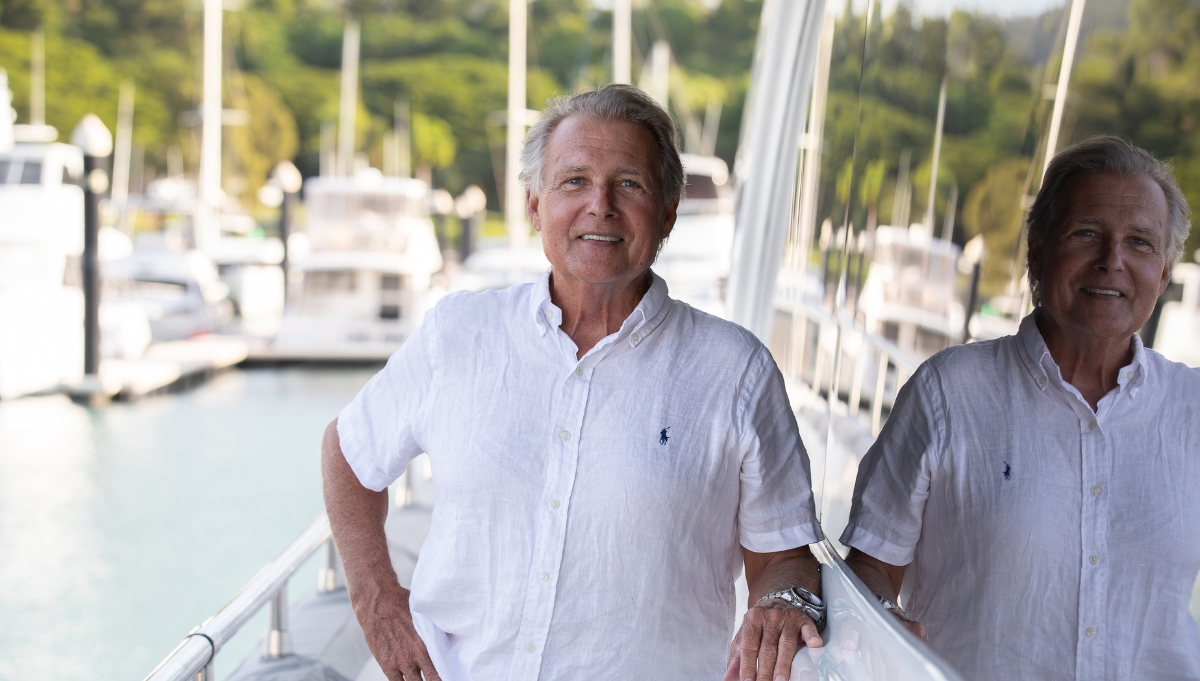
Paul Darrouzet

Paul Darrouzet
Paul Darrouzet
From a chance charter to buying a Great Barrier Reef gateway marina, superyacht owner Paul Darrouzet’s passion for the Whitsundays has delivered a host of economic, community and conservation wins.
A career in construction and mining is not the obvious path to yachting, but for Paul Darrouzet, owner of Coral Sea Marina in Australia’s glorious Whitsundays, it provided the necessary means to satisfy his lifelong love of the sea, both as a marina operator and superyacht owner. “In 1987, a bunch of mates and I hired a Whiting 47 called Kakini and we cruised around the Whitsundays,” he begins. “From that day, I was held captive by the physical beauty of the region.”
Following that first charter, Darrouzet continued to regularly travel to the region. When Abell Point Marina, as it was then called, came up for sale, he recognised a “diamond in the rough” and bought the property in 2013. “I’m a little biased, but my favourite place to cruise is the Whitsunday islands,” he says. “I like to drop anchor in Stonehaven on the northern end of Hook Island where there are great sunsets, a fringing coral reef with an abundance of marine life and stunning views across Hayman Island and Langford Island. I am captivated by the beauty of the Whitsundays every time I am out on the water,” he continues. “The stunning beaches and crystal-clear reefs are as mesmerising today as they were 30 years ago.”
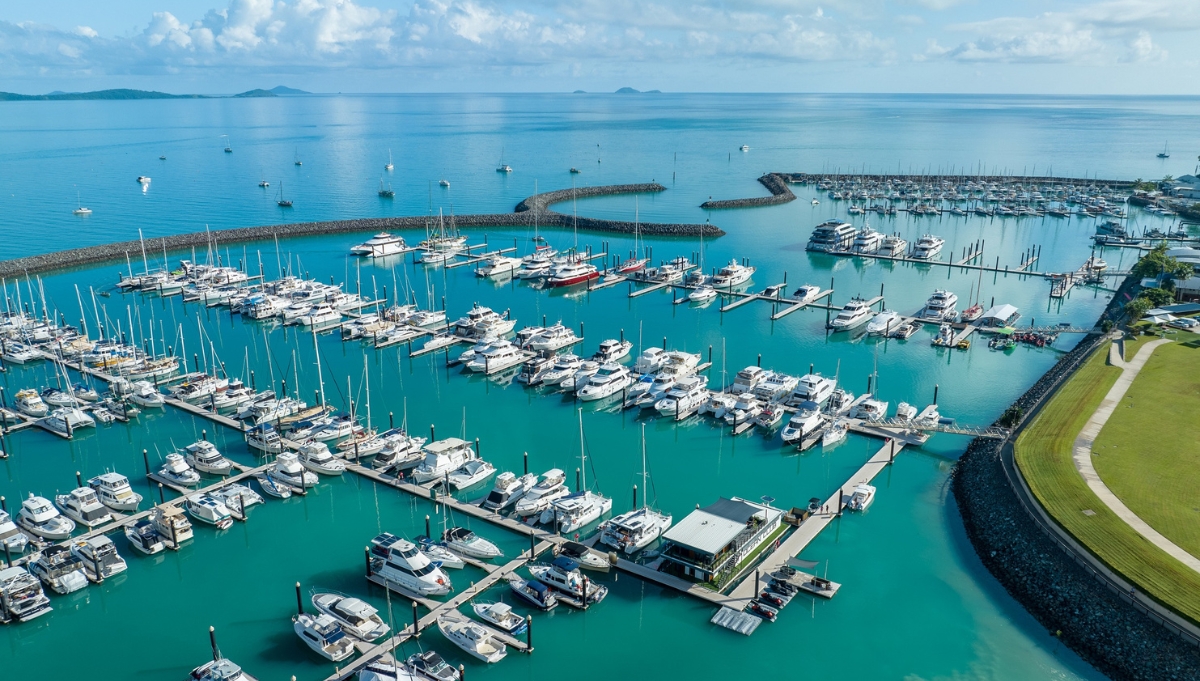
Coral Sea Marina

Coral Sea Marina
It has all the markings of a fairy tale story – the boy who grew up to acquire his own slice of paradise – and yet purchasing a marina (and an ailing one at that) is no small undertaking. It’s thanks to the understanding and first-hand experience Darrouzet gained as a yacht owner that he found the confidence and expertise to pursue his dream. In the early days, he owned a Riviera 56 Passagemaker, before moving onto an 80-foot Warren. For the past nine years, he’s owned Norseman, a 98-foot Falcon manufactured in Viareggio in Italy.
While yacht ownership has provided him with the opportunity to take guests to places they have never visited before and provide them with unique experiences, it has also furnished him with a unique perspective on what a yacht owner looks for when choosing a marina. After acquiring Abell Point Marina, he embarked on a decade long transformational journey to its now award-winning status. “Whilst purchasing the marina presented its own set of challenges – the reputation was woeful, the physical infrastructure dilapidated – I saw an opportunity to get into the ‘happiness business’, otherwise known as yachting, and seized it,” he enthuses.
Coral Sea is located at Airlie Beach on the tropical coast of Queensland, an area commonly referred to as the ‘Monaco of the South Pacific’. It’s 260 nautical miles from the large refit yards in the yachting hub of Cairns, and a mere 36 nautical miles from the Outer Great Barrier Reef, the world’s largest coral reef system. With incredible landscapes, great marina facilities and safe, accessible cruising grounds, Darrouzet believes the region is helping to position Australia as yachting’s ‘new frontier’. “Whilst the Whitsundays is in the top four cruising destinations on Earth, we still only have 2-3% of the world’s superyachts visiting Australia,” he says. “The vision since I purchased the marina has been to promote the area’s beauty across the globe, and at the same time create a premium destination for visiting superyachts at the heart of the world-heritage Great Barrier Reef.”
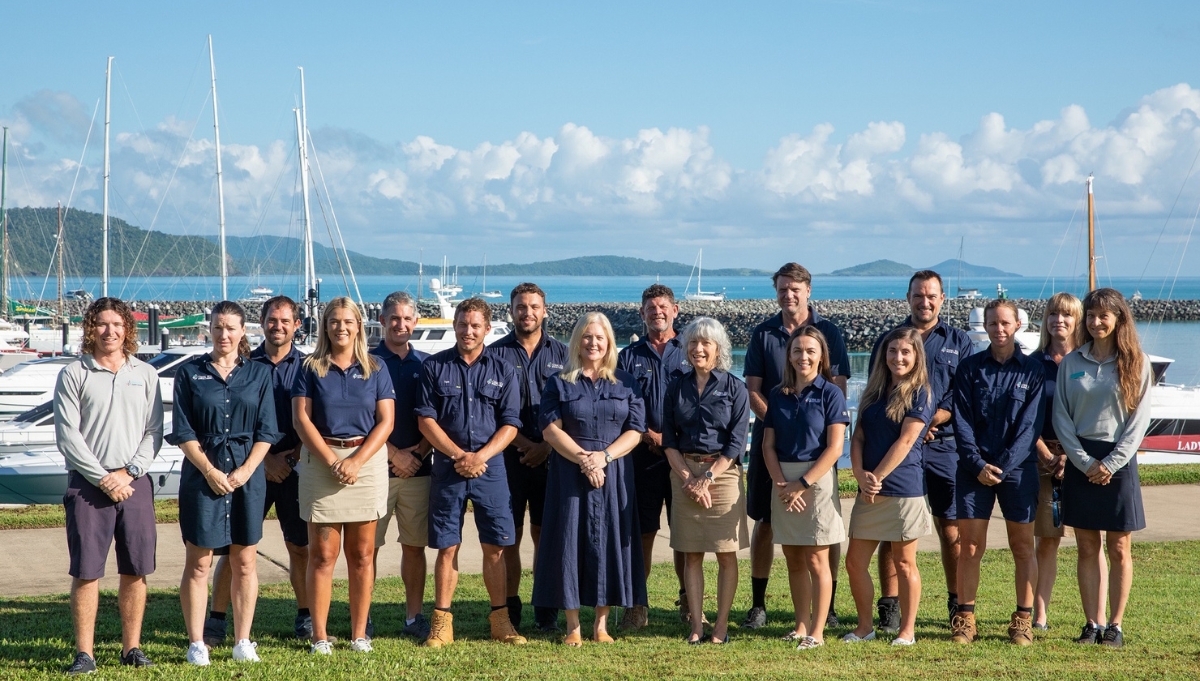
Coral Sea Marina team

Coral Sea Marina team
The positive economic impact of the superyacht industry on regions such as the Whitsundays is undeniable, states Darrouzet, who says the average superyacht carrying 12 guests injects more into the local economy in a week than a 70,000-tonne cruise ship with 2,000 passengers. “Superyachts present a high-yielding, high-value, low-impact customer, which for a regional area reliant on tourism has significant effects for the community. From the local florist to the butcher, all these small family owned and operated businesses significantly benefit each time a superyacht visits our region.”
While Darrouzet’s immediate priority was to repair the marina’s physical infrastructure and terrible reputation, his driver was to create a better place for people to visit, a stronger economy for the Whitsundays and to effect positive change for the surrounding community.
Key to that vision was a focus on philanthropic efforts, which has manifested in the sponsorship of youth sporting clubs, working with local schools to promote reef conservation, and supporting Sailability Whitsundays, an organisation that provides opportunities for disabled people to get out on the water and enjoy sailing. The Marina also supports major regional festivals and events, such as the Whitsunday Clipper Race Carnival, the Great Barrier Reef Festival and its own Coral Sea Marina Resort Airlie Beach Triathlon Festival, while its platinum sponsorship of the Whitsunday Voluntary Marine Rescue provides marina berthing, fuel and the upkeep of the organisation’s rescue vessel.
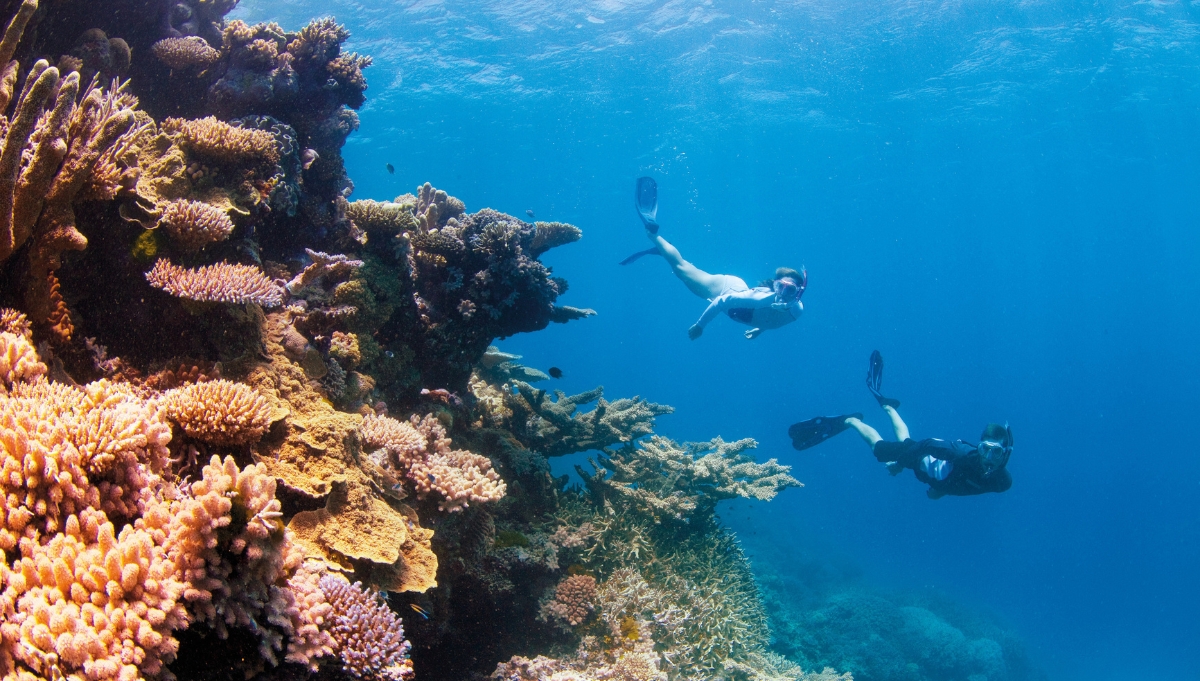

Most significant of all is the Coral Sea Academy, which works to protect and conserve the marine environment. As one of only 58 Clean Marinas and 38 Fish Friendly Marina Level III marinas in the world, its initiatives educate yacht owners on sustainable boating practices, including source reduction programmes and advanced waste management practices. It also partners with key environmental organisations to support scientific research and houses its own seagrass restoration nursery test site at the marina, in partnership with the Reef Island Initiative and CQ University. “We recognise that conservation of our marine environment is essential to the longevity of our business,” says Darrouzet. “Protecting the natural assets that surround us is key to ensuring generations for years to come can enjoy the beauty of the Great Barrier Reef.”
It’s a mindset that is shared by the global yachting community, from crew and owners to shipyards and designers, all of whom work hard to develop ways to reduce yachting’s impact and to make the industry more sustainable. Darrouzet’s ethos for “continuous improvement” speaks to a way of life, one that both he and his employees live and breathe. “Many of the team who started the journey with me in 2013 are still working at the marina and have been through the entire journey with me,” he concludes. “The qualities we looked for at the start of the journey were persistent and unwavering commitment, and they’re the same qualities I value in my key people to this day.”


